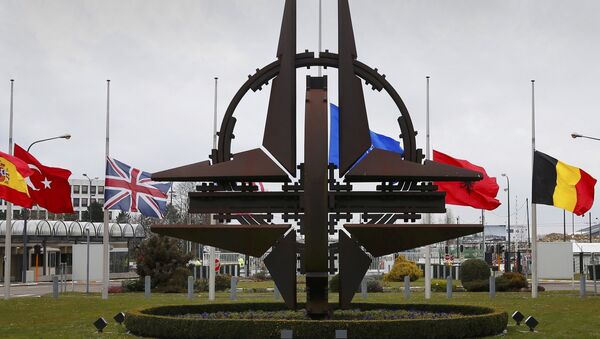WASHINGTON (Sputnik) — Emmanuel Macron’s presidential election victory means France’s foreign policy will remain unchanged with sanctions retained against Russia and millions more refugees pouring into the country from the Middle East and Africa, analysts told Sputnik.
"The quick answer is more of the same: more Russian sanctions, more ‘Assad must go,’ more ‘NATO must expand,’ more Atlanticism, more immigration and so on," retired Canadian diplomat Patrick Armstrong said on Monday.
Older French voters flocked to support Macron in order to keep populist National Front leader Marine Le Pen out of power, but Le Pen proved effective in attracting a larger share of younger French voters than previous nationalist candidates, Armstrong observed.
"The establishment won this one but considering that Le Pen attracted so many young voters and so few older ones, perhaps one can say that this was a victory of those who fear change over those who know it has already happened," he said.
Macron therefore was likely to serve as a "second" Hollande or "Hollande 2ème," he said.
University of Pittsburgh Professor of International Relations Michael Brenner agreed that Macron’s victory would "freeze" Hollande’s foreign policies in place for another presidential term.
There was now "No reason to expect any change in French foreign policy — in any domain including the European Union," he stated.
Macron’s domestic and foreign affairs politics and principles were almost identical from unsuccessful Republican Party presidential candidate and former prime minister Francois Fillon, Brenner pointed out.
"Macron is a radical neo-Liberal. In that sense, he is a twin of Fillon. So he likely will find deep and quite wide support among the conservatives (Republicans) in the legislature," he said.
However, Macron’s "program will hurt a lot of people — especially those who usually vote Socialist," he warned.
Macron's ability to govern effectively would also hinge on the outcome of France’s parliamentary elections for the next National Assembly, which are due to be held next month, Brenner noted.
"A lot depends on the outcome of the legislative election which today is totally unpredictable," he concluded.
In Sunday’s voter, Macron won 66 percent of the vote compared to only 34 percent for Le Pen.




